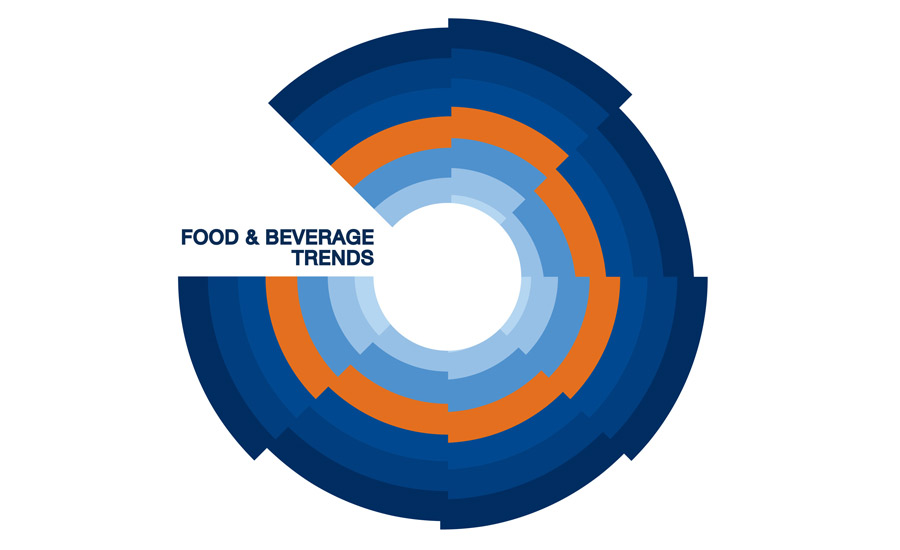Informa Markets’ Natural Products Expo West, part of the New Hope Network family of brands, announced five trends to watch out for in 2023, which will be on display throughout the expo halls during the natural and organic industry’s largest annual event.
The majority of the trends are focused on sustainability, which is proving to be the primary motivator for many new and emerging entrepreneurs, a key factor in corporate commitments and an important “why” behind radical transparency and impact assessments. Additional trends to look out for at Expo West and beyond include new models for earning consumer trust and a whole-body, multiple-systems approach to wellness.
“It’s always tempting to zero in on the year’s hottest innovations or the latest go-to ingredients, but it’s important to recognize that these trends are reflections and manifestations of the much broader cultural forces that are truly driving today’s natural products industry,” said Jessica Rubino, vice president, content at Informa Markets’ New Hope Network. “These big-picture trends exist on a continuum, and Natural Products Expo West offers a front-row seat to observe their evolution.”
Compiled by a team of a team of New Hope Network content experts and trend forecasters, the following five emerging trends in natural and organic are expected to grow in reach and importance in the coming year.
Trend 1: The intersection of health systems
We’ve come to recognize how the gut influences all health systems in the body. Driving this is the vast human microbiome, colonies of microorganisms that outnumber human cells by 10 to 1. Consumers are learning this, but the learnings aren’t often actionable. Companies approaching this trend are looking at how foods and supplements can support a healthy microbiome and educating on how a healthy microbiome means better brain health, better heart health and even improved mood and mental health.
Expo West, held March 7-11 at the Anaheim Convention Center, expects to host more than 3,000 exhibiting companies and more than 67,000 registered attendees with tens of thousands of new products on display that will be coming soon to store shelves.
Trend 2: Delivering on climate commitments
In the diverse space of sustainability, many mission-conscious brands are bringing climate solutions to market. Carbon accounting and carbon-neutral or -negative commitments are making the rounds among emerging and established brands. Such commitments and initiatives can not only earn consumer trust and have a positive environmental impact, but also, as is the case with transitioning to renewable energy, Information Classification: General could help cushion a brand’s production costs from volatile oil prices. One potential outcome? Helping to keep consumer prices down when fossil fuel prices are high.
Trend 3: There’s no transparency like radical transparency
Considering food tech, climate change, inequity issues and continued use of vague terms such clean or sustainable, consumers want to know the who, what, where, when, why and how of the products they are buying—and they depend on brands and retailers to help them navigate it all. Certifications, audits and dietary guidelines can help; companies can also achieve transparency by disclosing company goals (and progress on them), ingredient lists and new initiatives. The key to success is to be clear, authentic and truthful, which also means being vulnerable.
Trend 4: Born of sustainability
As more consumers wake up to food’s relationship to environmental health, founders are serving up food and other CPG products with environmental solutions at the forefront. These companies become enterprises on a mission to use food and agriculture to address issues such as climate change, biodiversity loss and social justice.
The environmental mission is so woven into their value proposition that it is a key driver of consumer decision making. Storytelling—including on packaging—plays an important role in delivering these mission-driven concepts to market, so more entrepreneurs are likely to share their solution-driven journeys.
Trend 5: The “subscriptionalization” of everything
Meal kits have people cooking at home and eating healthier. Personalized nutrition subscriptions offer pre-sorted supplements tailored to the consumer’s needs and goals and a model that encourages sticking to that regimen. Both of those could fit into a retail universe, as smart retailers are giving their customers a reason to shop brick- andmortar regularly and helping customers achieve their wellness goals while they are instore.



